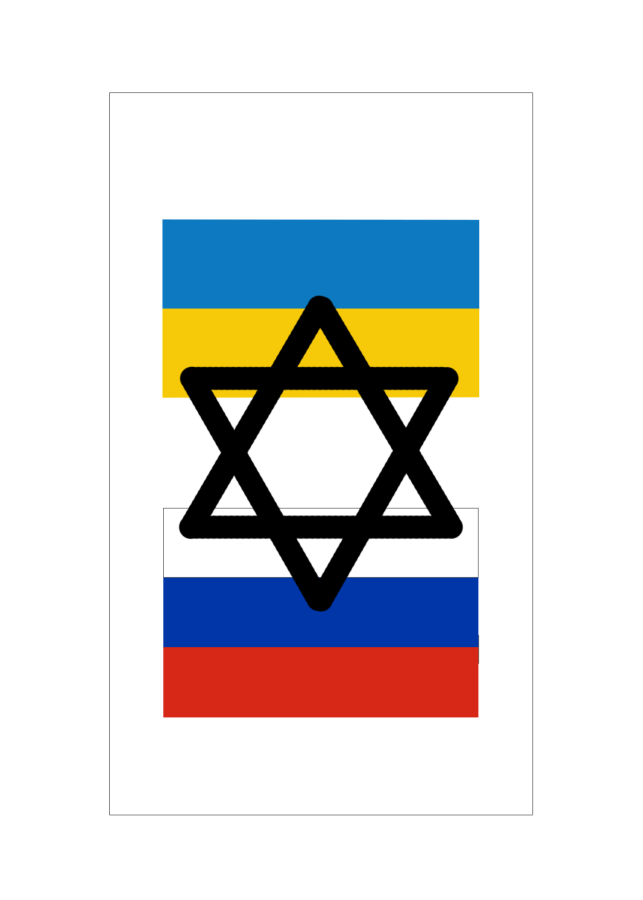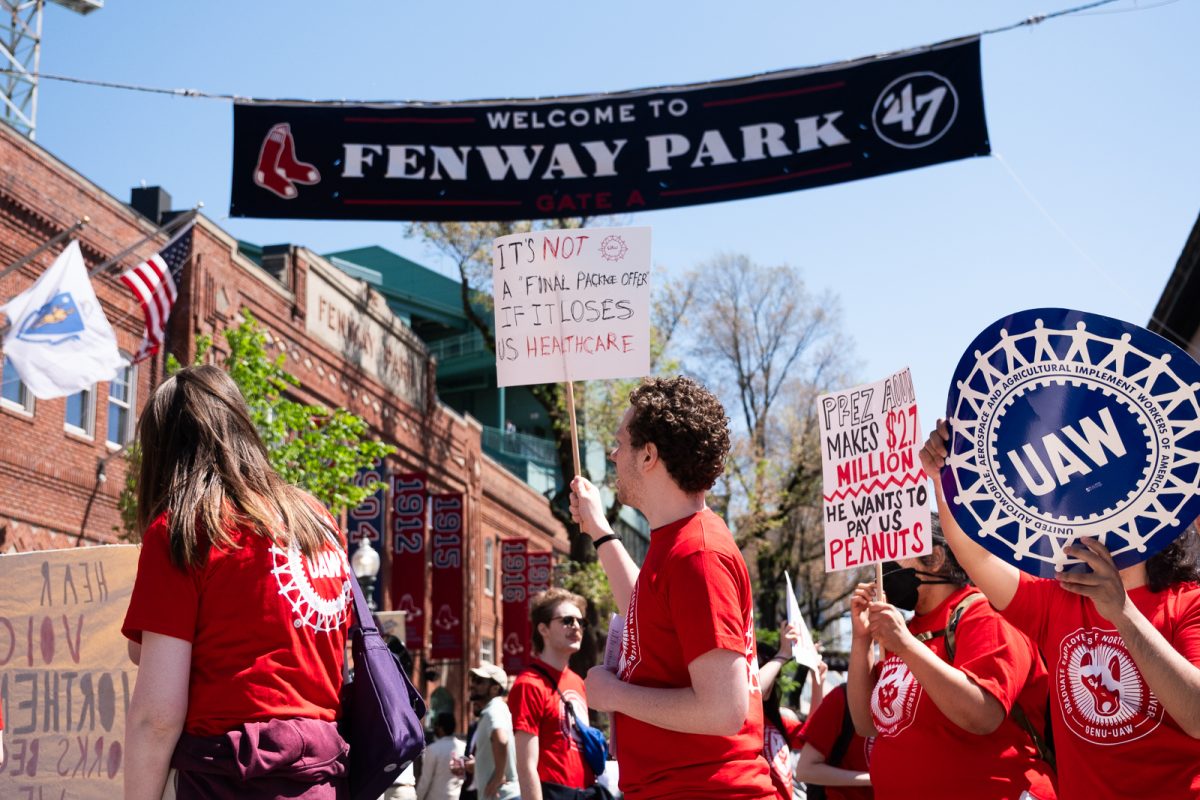Op-ed: How Antisemitism is Ingrained Into the Russia-Ukraine War
Antisemitism has played an increasing role in Putin’s invasion and war efforts against Ukraine.
April 15, 2022
Eastern Europe has dealt with antisemitism in different capacities for centuries on end, but Russian President Vladimir Putin’s recent statement regarding his mission to, among other things, “denazify” Ukraine takes it to an extreme that hasn’t been seen for decades. The implications of Putin’s rhetoric are more dangeous than in years past; the loaded antisemitic statements that have been following the Russia-Ukraine war since the beginning of the conflict should be a topic of concern for not only Ukranian and Russian Jews, but Jews everywhere.
While Putin himself is actually one of the least openly antisemitic Russian leaders in recent history (a low bar to cross), Russia as a country has a lengthy history of antisemitic practices. However, Putin’s most recent statement has caused speculation about what exactly Russia’s long-term goal is in regards to Jews on the Eastern Bloc. The term “denazification” alludes to Germany and the process that ensued after the second world war; Putin’s statement is not only politically incorrect, but also fuels anti-Ukrainian sentiment among Russian citizens.
Post World War II, other countries worked to denazify West Germany by removing high-ranking Nazi officials from power. Putin urges Russia to push towards a similar goal, but he equates the Nazis to the Ukranian leaders pushing for democracy, like President Volodymyr Zelenskyy. Putin’s fear of Ukraine’s increasingly democratic government, as well as the possiblity of Ukraine joining NATO, drives his choice of words; while his verbiage may be historically incorrect, that may be what makes it the perfect piece of propaganda.
Russia has deep connections to World War II and the historical denazification of Germany. There were roughly 24 million military and civilian deaths in the Soviet Union alone from helping the Allies defeat Nazi Germany, a substantial loss for Russian forces. Putin’s framing of Ukraine as in desperate need of ‘denazification’ draws the comparison that anything coming from the West is Nazism at its core. Combine the censorship of Russian media with Putin’s fear of Western democratic ideals and Ukraine becomes the perfect subject for hateful rhetoric that attempts to unite Russian citizens under the ideals of antisemitism.
Zelenskyy is also Jewish, begging the question of how the Jewish leader of a democratically run country could possibly be supporting Nazism when his ideals go against the very basis of Nazism. It’s a typical antisemitic ploy to flip the narrative by claiming that Jews are the actual Nazis while other demographics, such as white nationalists, are the true victims. By targeting the Jewish head of Ukraine’s government, Putin is essentially attempting to persuade Russian citizens that Judaism and democracy are the actual forms of Nazism they need to stay wary of. Russia’s Deputy Chairman of the Security Council, Dmitry Medvedev, even went as far as to claim Zelenskyy acted as a Jewish ‘Sonderkommando,’ a term for an incarcerated Jew who was forced to discard the bodies from gas chambers during the Holocaust. Putin intentionally chose a topic that many Russians have deep-seated feelings about and spun it to villainize Ukraine, Jews and democracy, while simultaneously painting Russia as the victim. Unfortunately, many Russians believe him.
Putin’s tactic of leveraging antisemitism to amass Russian approval for his war efforts is despicable, but generally unsurprising considering the base he’s catering to. White Christian nationalists have largely supported the Kremlin since he came to power nearly a decade ago, and villainizing the Jewish population as the true Nazis only feeds into the antisemitic narrative that has been carried on for years by this crowd. Putin represents the prototypical authoritarian strongman that laments many of the same changes to Western society as those on the far right do. It’s one of the primary reasons that many hardcore Republicans support his invasion of Ukraine, fearful of what true democracy is capable of.
In times such as these, it’s important to listen to those both affected by and educated on the issue. There have been many protests against Russian invasion and fundraisers for Ukrainian citizens here at Northeastern, as well as a multitude of different ways to support Ukrainian citizens and spread awareness. For the sake of the Jewish community of Ukraine as well as Jews across the world, we must view Putin’s speech as the antisemitic dogwhistle that it is.
Isabel Baron is a first year journalism major at the University. She can be reached at baron.i@northeastern.edu.







